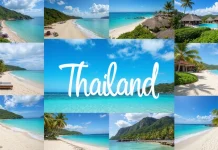Understanding Financial Independence
What is Financial Independence?
Financial independence is often perceived as a lofty goal, but at its core, it’s about having enough wealth to live without the need to work actively for life's necessities. It's the ability to fund your lifestyle and aspirations comfortably from your assets and investments. This concept is tailored to each individual, meaning what is financially independent for one person may not be the same for another.
The Importance of Financial Independence for Nomads
For those who aspire to a nomadic lifestyle, financial independence is crucial. Traveling frequently and living on the move requires a flexible and reliable source of income. The peace of mind that comes with knowing you can sustain your travels without financial strain or the need for traditional employment makes the nomadic lifestyle feasible and enjoyable.
High Mobility Demands
Nomads often don’t have a permanent base, which means they have unique financial needs such as handling foreign currencies, varying costs of living, and managing unexpected travel expenses. These factors necessitate having a robust financial plan to assure you can pivot smoothly, regardless of where or how you’re traveling.
The Role of Lifestyle Inflation
Lifestyle inflation — the tendency to spend more as you earn more — can become a trap for aspiring nomads. When trying to achieve financial independence, it’s paramount to resist this trap by prioritizing spending that aligns with long-term goals over impulsive upgrades.
Sources of Income for Financial Independence
Investment Income
One of the most sustainable ways to reach financial independence is through generating investment income. This can come from several sources, each of which has its own benefits and risks.
Stocks and Dividends
Investing in stocks is a common method. When you own shares in a company, you can earn dividends if the company distributes a portion of its profits to shareholders. Long-term capital gains offer another opportunity; by holding investments for extended periods, you could benefit from their appreciation in value.
Bond Interest
Bonds typically offer more predictable income streams through periodic interest payments. Although they might provide lower returns compared to stocks, their relative stability can be an asset in a diversified investment portfolio.
Building a Bond Ladder
To manage the risk and return of bond investments, consider a bond ladder strategy. This involves buying bonds with different maturities so you can reinvest proceeds at regular intervals, benefiting from changing interest rates.
Real Estate Income
Real estate is another avenue where financial independence seekers can leverage their capital to generate passive income. This includes renting properties or investing in Real Estate Investment Trusts (REITs).
Rental Properties
Owning rental properties provides a steady income stream through tenant payments, but it also comes with responsibilities such as property maintenance and tenant management. Understanding local real estate markets and regulations is crucial for success.
Real Estate Investment Trusts
If you’re not inclined to handle the management hassles of physical properties, REITs offer a way to invest in real estate without the direct involvement of being a landlord. They distribute most of their earnings as dividends, offering a passive income avenue with potentially lower upfront costs and responsibilities.
Creating a Side Business
Many nomads find success through entrepreneurship. Creating a side business or freelancing can complement traditional investment income, providing both financial support and personal satisfaction.
Freelancing and Consulting
Leverage your existing skills into freelance work or consulting services. Platforms like Upwork, Freelancer, and Fiverr connect professionals with clients globally, allowing you to work remotely from anywhere in the world.
Online Courses and Content
Creating online courses or publishing informational content in your area of expertise can serve as a passive income stream. Websites such as Teachable or Udemy provide infrastructure to reach students globally.
A Drop-shipping Business
Drop-shipping involves setting up an online store to sell products without holding any physical inventory. When a product is sold, a third party ships it directly to the customer. This business model requires strategic marketing and consumer demand analysis but offers a location-independent income source.
Practical Financial Planning for Nomadic Life
Budgeting for Travel
Effective budgeting is key to managing finances as a nomad. It enables you to plan and allocate funds appropriately to sustain your travels.
Creating a Travel Savings Plan
Set clear savings goals for travel, considering costs such as accommodation, transportation, health insurance, and recreation. Automating savings into a separate account dedicated to travel can help you stay focused and avoid impulsive spending.
Variable vs Fixed Costs
Differentiate between fixed costs (like travel insurance, subscriptions) and variable costs (like entertainment, local transport) in your budget. While fixed costs are usually predictable, variable costs require more scrutiny, as they are prone to fluctuations based on location and personal choices.
Emergency Funds and Insurance
Life on the road comes with uncertainties, making it essential to establish a safety net through emergency funds and insurance.
Building an Emergency Fund
An emergency fund should cover at least three to six months of your essential living expenses. This ensures you have a buffer in case of unexpected incidents like health emergencies or sudden travel curtailments.
Choosing the Right Insurance
Invest in comprehensive travel insurance that covers medical emergencies, trip cancellations, and loss of belongings. Evaluate policies carefully to ensure they fit your specific travel pattern and risk tolerance.
Currency Exchange and Banking
Efficient financial management involves understanding currency exchange dynamics and choosing banking solutions that minimize costs.
Efficient Currency Exchange
Use online services like TransferWise or Revolut, which often provide better exchange rates than traditional banks. Prepaid travel cards can also offer competitive rates and convenience.
Choosing the Right Bank Account
Opt for banking solutions that benefit travelers, such as accounts with no foreign transaction fees and global ATM access. Online-only banks often offer better features for international spending and cash withdrawals.
Strategies for Sustaining Financial Independence
Automation and Technology
Maximize the use of technology and automation to streamline financial processes. This allows you to spend more time enjoying your travels and less time managing finances.
Automated Investment Strategies
Robo-advisors and automated investment services like Betterment or Wealthfront can manage your portfolio efficiently, automatically rebalancing and optimizing based on your financial goals and risk tolerance.
Financial Tracking Tools
Use budgeting apps and financial software to monitor spending and income, categorizing transactions to give a clear view of your financial health. Mint, YNAB, or Personal Capital can be very helpful in maintaining transparency over your expenses.
Flexible Spending Strategies
Being a nomad means adapting quickly to new environments. Flexibility in your financial approach can powerfully support your lifestyle.
Geoarbitrage
Leverage geoarbitrage by earning income in a strong currency while living in an area with a lower cost of living. This strategy allows you to stretch your income farther and save more effectively.
Engaging in Local Opportunities
Participating in local gigs and opportunities can be a rewarding way of both experiencing new cultures and supplementing your income. Tasks like teaching English, short-term seasonal work, or volunteering for exchange might align with your travel itinerary.
Reassessing and Optimizing Investments
Regularly revisiting your investment portfolio is important to stay aligned with changing market conditions and personal circumstances.
Portfolio Diversification
Ensure your investment portfolio is well-diversified to safeguard against market volatility. Diversification across asset classes and geographies minimizes potential risks while preserving growth potential.
Understanding Market Trends
Stay informed about market and economic trends to understand how they may impact your investments. Research and consult financial advisors as needed to make knowledgeable adjustments to your strategy.
Mindful Consumption
Keeping consumption in check and prioritizing spending that truly enhances your travel experience is crucial.
Minimalism
Embrace minimalism by focusing on essentials and reducing clutter. This not only reduces costs but also simplifies your travels, allowing you to enjoy experiences over possessions.
Mindful Spending Habits
Adopting mindful spending ensures every dollar is spent intentionally, reinforcing your financial independence while you enjoy the diversity of nomadic life.
Building Community and Support Networks
The Power of Networking
Having a reliable network when traveling can provide support, friendship, and potentially unlock new opportunities.
Online Communities
Join online communities and forums dedicated to nomads and travelers. Platforms like Nomad List or Meetup can connect you with like-minded individuals and offer advice and resources.
Local Meetups and Events
Attend local events wherever you travel to immerse yourself in the community, make friends, and learn from fellow travelers. Locals can offer unique insights into living costs and economical tips relevant to the area.
Living Arrangements
Having flexible accommodation strategies can greatly reduce costs and enhance the travel experience.
House Sitting
House sitting allows you to eliminate accommodation costs while taking care of a homeowner’s property in their absence. This arrangement can offer comfort and economize your travel budget substantially.
Coliving Spaces
Coliving spaces provide an opportunity to live inexpensively and connect with other travelers. Many coliving options cater specifically to digital nomads, offering reliable internet and coworking spaces.
Work Exchange Programs
Engage in work exchange programs, where you offer services such as farm work or hospitality help in exchange for accommodation and meals. These experiences can provide cultural immersion and significant savings on living costs.
By focusing on these detailed steps and strategies, you can build a sustainable financial foundation to support your lifestyle as a nomad. Enjoying the freedom to explore while being financially independent is a deeply fulfilling experience, allowing for authenticity and adventure in your travels.
































